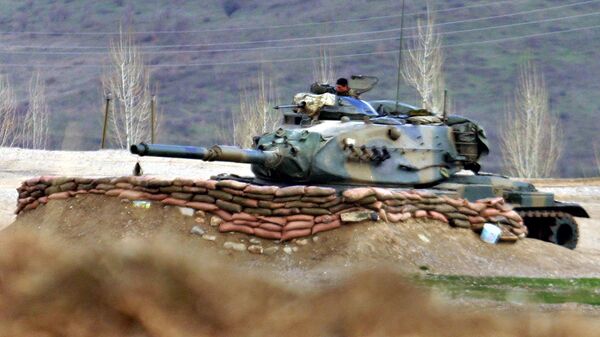According to Renad Mansour, Iraq expert at Chatham House, Turkey has historically had influence in the region, and, as any other regional actor, wants to make sure that after the retake of Mosul, their interests are met.
Turkey's interest in Iraq is quite clear, and it concerns the Kurds, a separatist group that claims a portion of Iraq, Syria and Turkey itself.
As anti-Daesh forces launched their offensive on Northern Iraq's largest city of Mosul early Monday, October 17, Turkey is looking to ensure the Kurds gain no power post-Daesh in this region.
Should Daesh be kicked out of Mosul, a "power vacuum will ensue" in the region, which will suck in various groups, backed by various regional powers, such as Iran. By moving in its own military forces, Turkey aims to "grab" influence in Northern Iraq and gain leverage on the Kurdistan Workers' Party (PKK.)
While Turkish troops' presence on the outskirts of Mosul is reluctantly tolerated by Iraqi officials, an outright capture of the city by Ankara would be considered completely illegitimate; not only by officials, but Mosul's population would not tolerate its occupation of the city, Mansour said.
Mansour also suggested that Ankara simply does not have enough manpower to conduct such an operation on its own, considering the recent purge of the Turkish army — a long-time repercussion of the failed coup attempt earlier this year.
Finally, the US claims to support Iraqi sovereignty, Mansour says, and any outside actor intervening in Iraq would this be perceived as an attack. Both Iraq and Turkey are US allies, and while the US-Turkey alliance is fragile, the two countries will likely try to stick to it for the time being, he added..
Thus, Turkey has a great interest in acting through various proxies rather than directly, just in case some drastic response becomes necessary in the liberation of Mosul.



